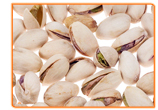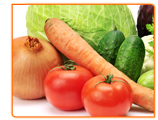Do Phytoestrogens Increase the Risk of Cancer?
Phytoestrogens are any plants which contain estrogen-like compounds. They are an increasingly popular method for combating menopause symptoms, as they act as though they are replenishing the low levels of estrogen in the body during menopause. Phytoestrogens can be found in many foods, including grains, beans, nuts and seeds, but it is only when they are taken in more concentrated supplements that they begin to have an impact on the body.
 Phytoestrogens can be an effective way to relieve the uncomfortable symptoms of menopause. However, studies have suggested a link between phytoestrogen consumption and an increased risk of developing cancer. Read on to find out about how phytoestrogens might increase your susceptibility to cancer, and how to take them safely.
Phytoestrogens can be an effective way to relieve the uncomfortable symptoms of menopause. However, studies have suggested a link between phytoestrogen consumption and an increased risk of developing cancer. Read on to find out about how phytoestrogens might increase your susceptibility to cancer, and how to take them safely.
How Might Phytoestrogens Increase the Risk of Cancer?
It is thought that increased exposure to hormones increases the risk of cancer. Specifically, the hormone estrogen, which fluctuates in the body during menopause, has been linked to breast cancer. This suggests that phytoestrogens and their estrogen-like qualities might also contribute to an increased risk of cancer.
 Yet studies that have been done suggest that, on the contrary, phytoestrogens appear to protect bodily tissues from cancerous growth. While the evidence surrounding the way in which phytoestrogens might increase the risk of cancer remains inconclusive, ingesting too much of the estrogen-like compound present in phytoestrogens should be avoided.
Yet studies that have been done suggest that, on the contrary, phytoestrogens appear to protect bodily tissues from cancerous growth. While the evidence surrounding the way in which phytoestrogens might increase the risk of cancer remains inconclusive, ingesting too much of the estrogen-like compound present in phytoestrogens should be avoided.
How Can I Take Phytoestrogens Safely?
Phytoestrogens are present in a wide variety of foods, including grains, beans, nuts, seeds, and fruit and vegetables. Consuming phytoestrogens in this way does not impact upon the body, and there is no need to adapt the diet to reduce the consumption of phytoestrogens through these foods.
 Care needs to be taken when ingesting phytoestrogens in more concentrated forms, such as in capsules or pills. This is the level of phytoestrogen which has an estrogen-like effect. When consuming phytoestrogen in this form, prolonged use is not advised, and make sure that you do not exceed the recommended dose. If you are in doubt about your phytoestrogen intake, consult your doctor.
Care needs to be taken when ingesting phytoestrogens in more concentrated forms, such as in capsules or pills. This is the level of phytoestrogen which has an estrogen-like effect. When consuming phytoestrogen in this form, prolonged use is not advised, and make sure that you do not exceed the recommended dose. If you are in doubt about your phytoestrogen intake, consult your doctor.
Conclusion
While it has not been proven that phytoestrogens increase chances of cancer, it is important to be mindful of the possible risk when considering how to treat your menopause symptoms. Click on the following link to learn more about phytoestrogens.



























